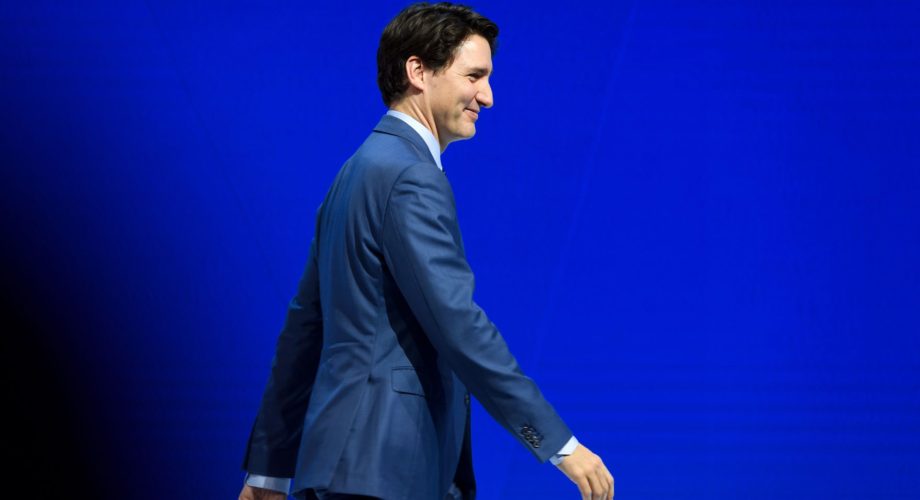
Canadian prime minister Justin Trudeau at the World Economic Forum in Davos called the TPP the ‘right deal’.
The Trans-Pacific Partnership trade pact, which had been on life support since Donald Trump’s withdrawal of the US a year ago, has finally been resuscitated.
The 11 remaining countries are expected to sign an amended agreement on 8 March in Chile, Australia’s trade minister, Steve Ciobo, has confirmed.
Canada threw a spanner in the works at the Apec summit in Vietnam last year, derailing efforts to finalise the deal.
Ottawa has since been coaxed back to the fold after lobbying efforts from Tokyo and Canberra.
Trade officials had been meeting in Tokyo to resolve rifts including Canada’s insistence on protections for its cultural industries such as movies, TV and music.
Canada’s trade minister said the pact included an improved arrangement on cars with Japan and the suspension of intellectual property provisions that had been a concern.
The timing of the deal is significant for Canada, which is trying to diversify its exports. US, Canadian and Mexican negotiators opened a key, week-long round of talks to modernise Nafta on Tuesday.
Speaking at the World Economic Forum in Davos, Switzerland, overnight, Canada’s prime minister, Justin Trudeau, called the agreement the “right deal”.
Australian prime minister, Malcolm Turnbull, said last week the new agreement would leave a door open for eventual US participation.
The deal is planned to eliminate 98% of tariffs in a marketplace worth close to $14tn.
Nearly a quarter of Australia’s exports last financial year, worth almost $88bn, went to the countries in the TPP-11.
Ciobo said the TPP included new bilateral free trade deals with Canada and Mexico and “enhanced access into a number of markets”.
The deal includes the abolition of all tariffs on seafood, wine, sheep meat, cotton wool and manufactured goods across the region.
Speaking from Davos, Ciobo told Australia’s Radio National the deal would increase access to Japan for Australian beef producers, resulting in a “more rapid decrease on tariffs” that would provide a competitive advantage “at the expense of US beef producers”.
The TPP has been controversial in Australia owing to concerns about the investor state dispute settlement clause and because it lowers the requirement to test the local labour market before allowing skilled migrants from member nations.
Ciobo dismissed both concerns as part of a “scare campaign” against the deal. He said it was “absolutely not” the case that the TPP would give the government less ability to regulate corporations and the deal would not result in “an invasion of unskilled or unqualified foreign workers”.
Australia’s National Farmers’ Federation chief executive, Tony Mahar, said the resurrection of the TPP was a “really good thing for farmers”. “It will provide more opportunities and market access for us to sell our food and fibre,” he said.
The Australian Industry Group’s chief executive, Innes Willox, said the breakthrough was a “very positive step” and he expressed hope that the US would join the TPP in future.